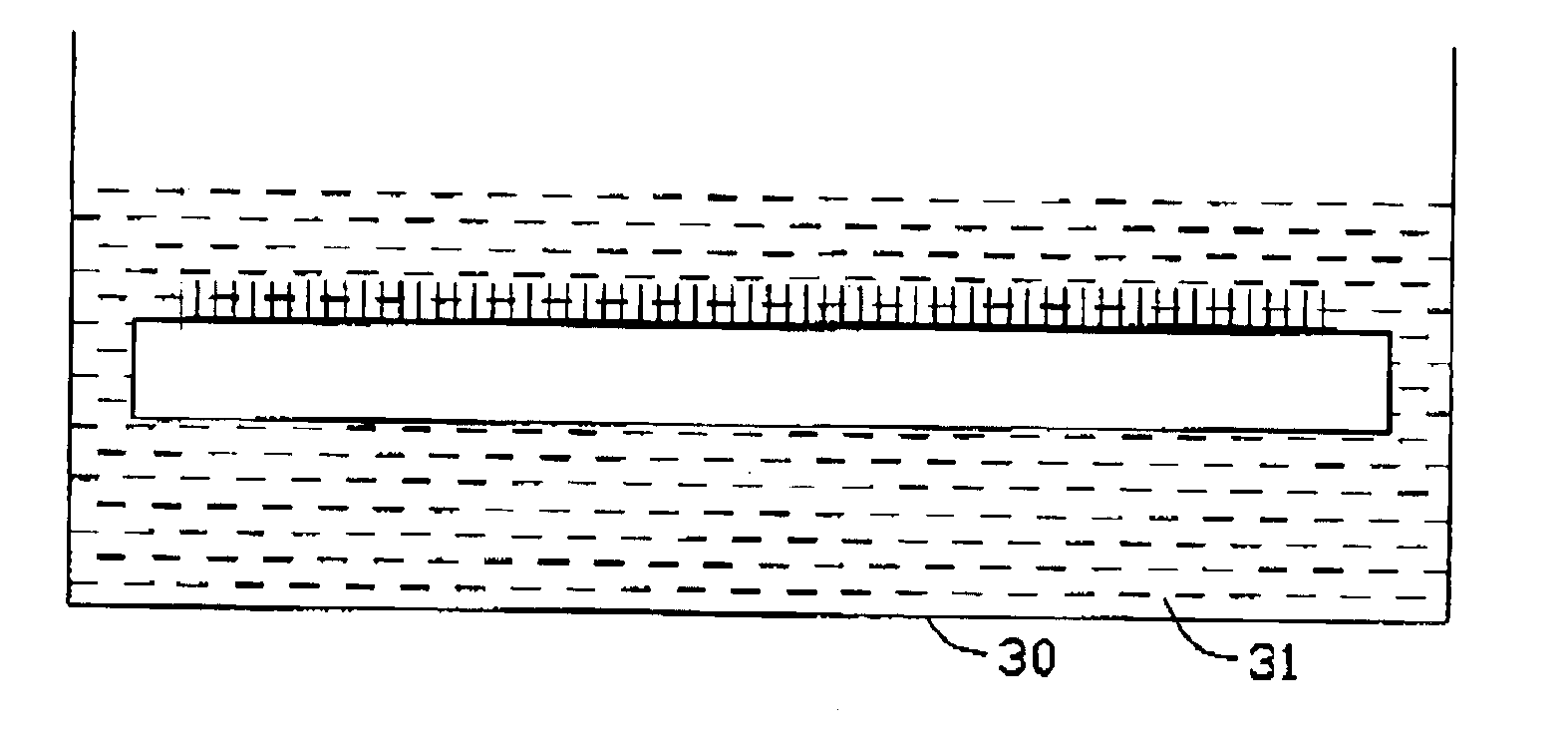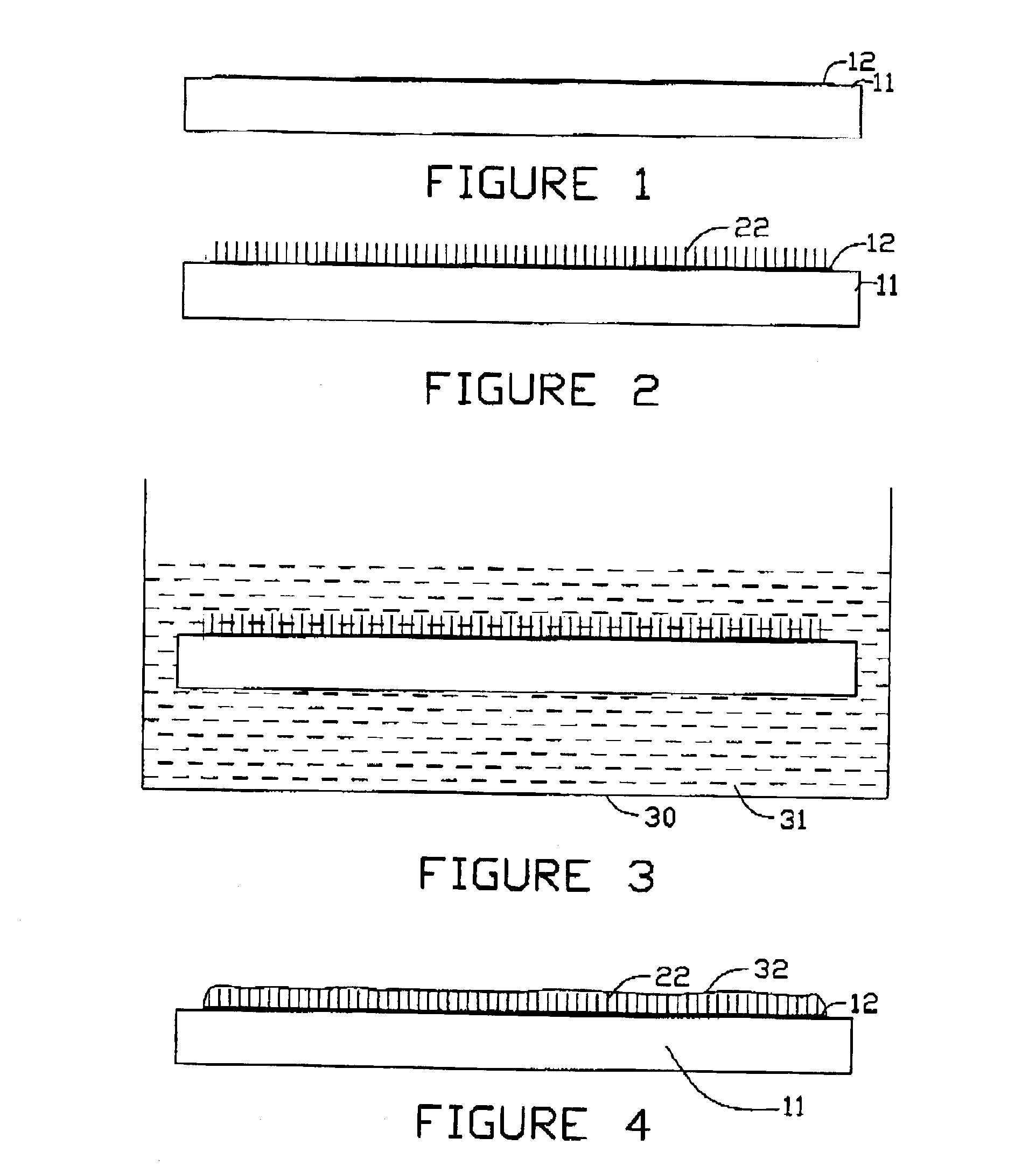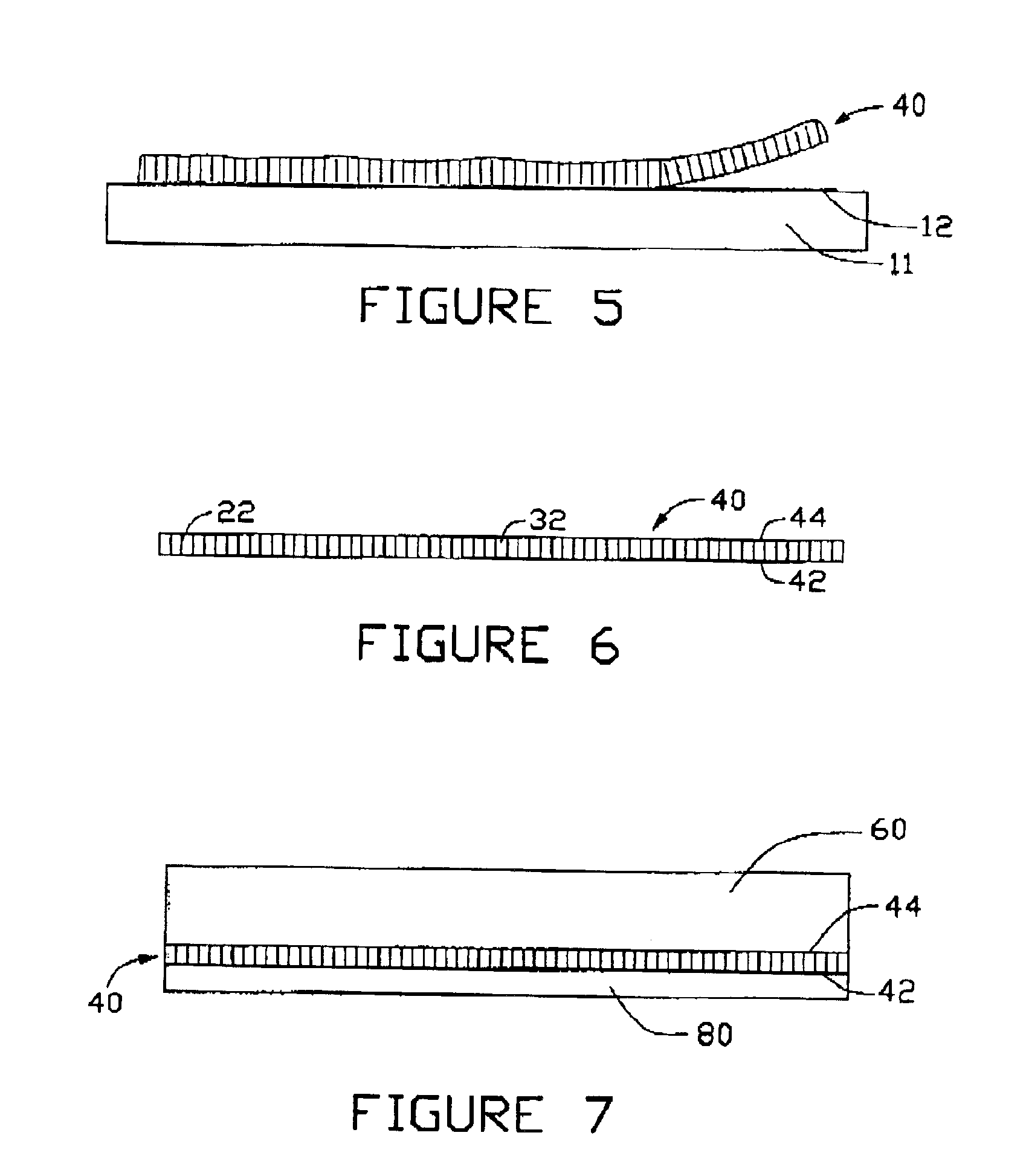Thermal interface material and method for making same
a technology of thermal interface material and material, which is applied in the direction of electrical apparatus construction details, transportation and packaging, lighting and heating apparatus, etc., can solve the problems of inability to meet the requirements of thickness, etc., to achieve uniform and high thermoconductivity
- Summary
- Abstract
- Description
- Claims
- Application Information
AI Technical Summary
Benefits of technology
Problems solved by technology
Method used
Image
Examples
Embodiment Construction
[0022]Reference will now be made to the drawings to describe the present invention in detail.
[0023]Referring to FIG. 6, a thermal interface material 40 in accordance with a preferred embodiment of the present invention comprises a polymer matrix 32 having a thermally conductive first face 42 and an opposite thermally conductive second face 44. An array of carbon nanotubes 22 is incorporated in the polymer matrix 32. The carbon nanotubes 22 are substantially parallel to each other, and extend between the first and second faces 42, 44.
[0024]Referring also to FIGS; 1-5, a preferred method for making the thermal interface material 40 comprises the steps of:[0025](1) providing a substrate 11, and forming the array of carbon nanotubes 22 on the substrate 11;[0026](2) immersing the carbon nanotubes 22 in a liquid prepolymer 31 such that the liquid prepolymer 31 infuses into the array of carbon nanotubes 22;[0027](3) polymerizing the liquid prepolymer 31 to obtain the polymer matrix 32 havi...
PUM
| Property | Measurement | Unit |
|---|---|---|
| thickness | aaaaa | aaaaa |
| thick | aaaaa | aaaaa |
| temperature | aaaaa | aaaaa |
Abstract
Description
Claims
Application Information
 Login to View More
Login to View More - R&D
- Intellectual Property
- Life Sciences
- Materials
- Tech Scout
- Unparalleled Data Quality
- Higher Quality Content
- 60% Fewer Hallucinations
Browse by: Latest US Patents, China's latest patents, Technical Efficacy Thesaurus, Application Domain, Technology Topic, Popular Technical Reports.
© 2025 PatSnap. All rights reserved.Legal|Privacy policy|Modern Slavery Act Transparency Statement|Sitemap|About US| Contact US: help@patsnap.com



